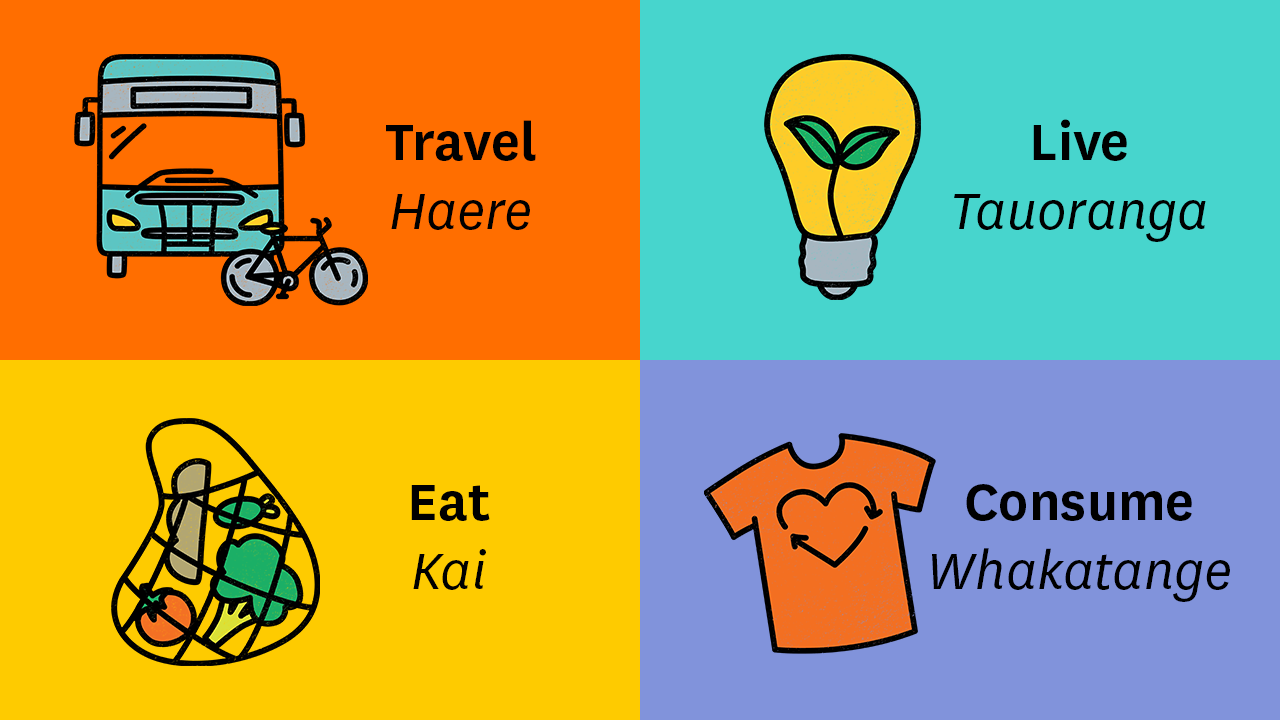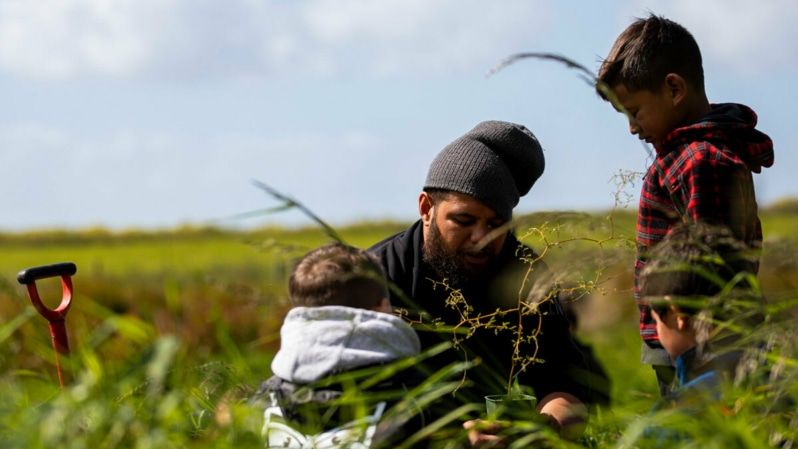Let’s take action for our climate

We know that we need to make some changes to the way we live, travel, eat and consume if we want to reduce greenhouse gas emissions in Canterbury/Waitaha. These changes don't have to be big - think about opting for public or active transport one day a week, hanging your laundry on the line instead of using the dryer, having one meat-free meal a week, or choosing pre-loved clothing over new.
Every action adds up to reduce the impacts of climate change, and these small changes are not only better for our planet, but also our communities, our wallets and our health.
If we all do a little, we can change a lot.
